How to help volunteers after the war
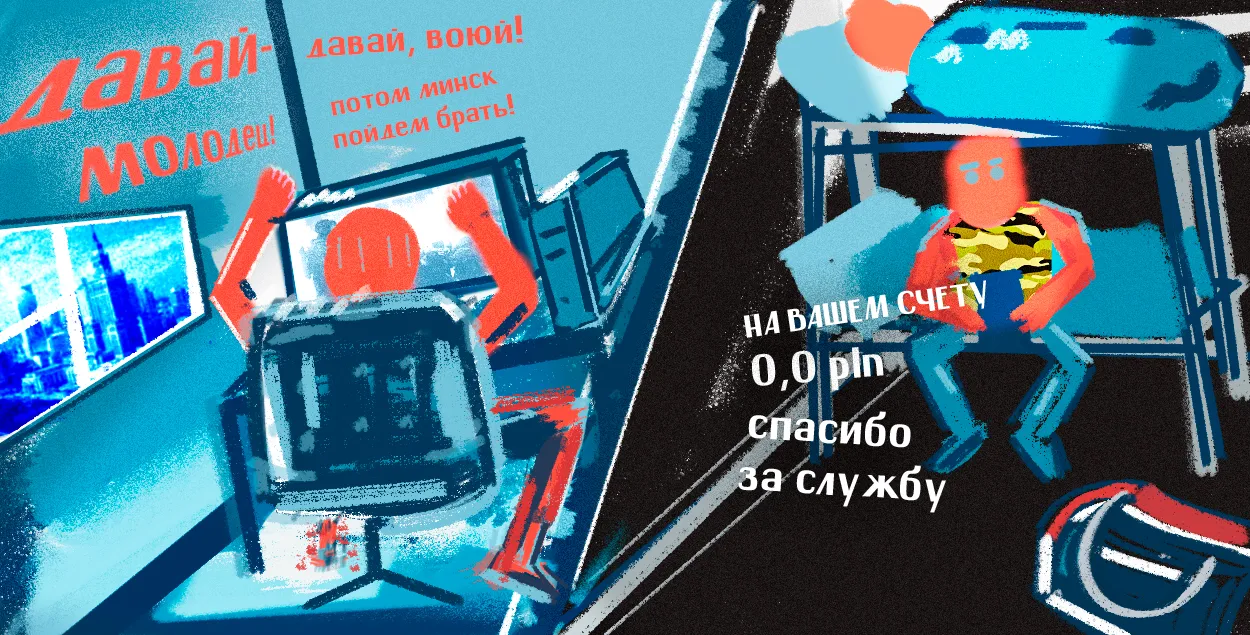
Volunteers in peacetime / @rubanau_collage / @rubanau_collage
Sometimes "Quiet" would send home photos "with a neutral background." His family thought that this "neutral background" was Warsaw. In fact, most of the photos were taken in southern Ukraine. The Belarusian volunteer participated in the operations you read about in the news - in the liberation of Kherson region, in Ukraine's summer counteroffensive.
But the other day his photo really showed Warsaw. After two years of service, he decided to return to civilian life, but could not become legal in Ukraine. He had to leave for Poland.
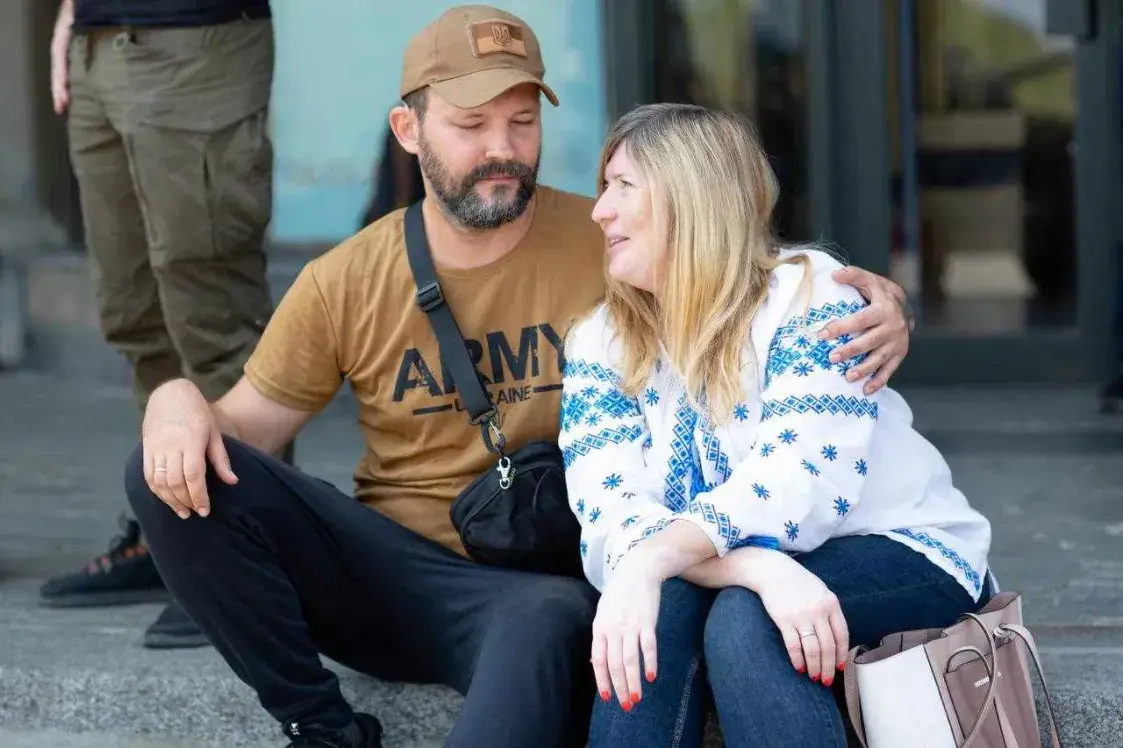
But when the Ukrainian society ran out of empathy, the military had the state with its guarantees (even if sometimes strange - the law on veterans is old, and according to it the participants of military operations are still guaranteed a free landline telephone and radio station).
But Belarusian volunteers have no state to take care of them. And if civil society "rolls back" empathy, they will have nothing left at all.
"A veteran has sacrificed time, health, career, sometimes even family. What can society give a person to compensate for this sacrifice? - Olga Galchenko argues. " The most popular request will be help with rehabilitation. The first thing a veteran will be concerned about is restoring health. Both physical and mental. You don't have to be the government to provide financial assistance, to allow people to see a psychologist, a massage therapist, an occupational therapist (a specialist in restoring skills to people with disabilities).
Another important request from veterans is to observe a certain ceremonial respect for their fallen comrades and to help their families. It is important for them to keep the memory of their friends, it is important that the deeds of the fallen are respected.
The third request is help with self-realization away from the front. And this can be help in employment, in starting your own business, in training, in learning new skills. After all, often when people come back, they find themselves in a changed world, especially if they worked in dynamically developing spheres.
For example, if a person was an IT specialist, they find out that in two years their skills have become obsolete, and they need to undergo training, to pump up their skills in order to be competitive in the labor market again. And it's good if someone helps to find the right courses and the means to take them.
It's good if the family was waiting for them. But not everyone is that lucky
"But life is completely different," thought "Quiet" recently, when he was sitting in the company of Belarusians and Ukrainians in Warsaw. But he never told anyone from that company what life was really like. He did not tell them he left more comfortable in a sleeping bag in the south of Ukraine than on a bed in Warsaw.
Military men do not like to come to relatively peaceful cities like Kyiv or Lviv even on vacation. They get used to the tense life on combat tours and don't always know what to do when that tension is gone, said Marina, a neurologist at the Lanka rehabilitation center.
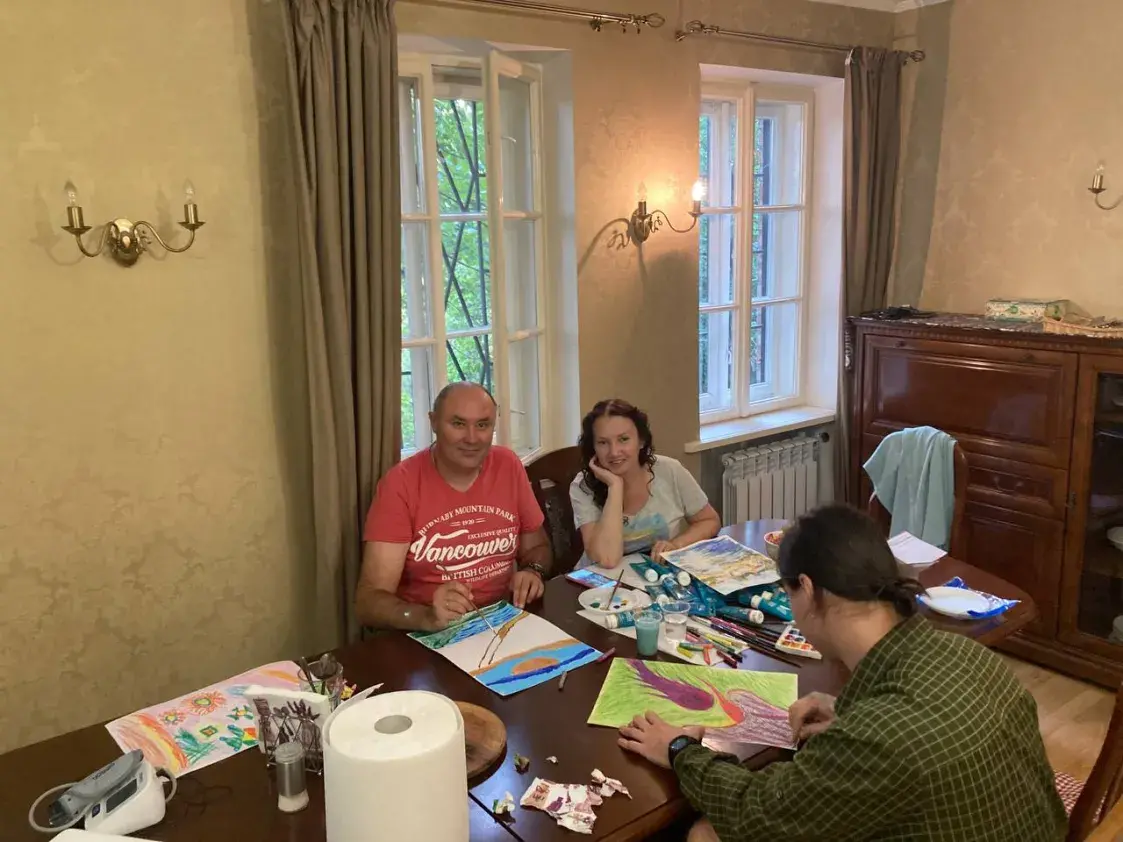
"You should not ask a person in detail about what happened to them. In time, when trust grows, they will tell you about these events to relive them".
For those who had a family waiting for them in their peaceful life, it will be easier to adapt. But among the volunteers there are those who, with the outbreak of war, were unable to maintain ties with their loved ones. There are those whose relatives live in Belarus. And there are families who don't know that the neutral background in the photo is Ukrainian Mykolaiv, not Warsaw.
"Of course, the feeling that you are safe, that you are loved, that you have been waited for helps a lot. If your loved one has returned from war, I would advise including them in simple everyday activities. For example, in our "Lanka" the first day in the center is given for adaptation, and then the guys are asked to join the daily routine.
By the way, you can also give a person a pet - yes, it is a responsible step. But simple actions - you have a dog, you have to walk it, you have to train it - ground you well.
I know a lot of military people like to meet with their brothers in arms, with those who have similar experiences. You shouldn't get hung up on socializing only within that microsociety of yours. But it's good if you can establish regular meetings with a clear schedule. Then they will become a soothing routine.
"Everyone shrugs us off: we have zero zlotys in our account"
When you don't know where to go, you look for your own. There is a veteran organization in Poland - the Association of Belarusian Volunteers. They help their own to find a place to live, to get clothes, to get a job. It's just a chat in a messenger.
"The other day our brother-in-arms was looking for a place to live and a job in the vicinity of Warsaw. We put out a call among our friends and helped the guy. We found it," says Pavel Maryeuski, a representative of the organization. "Sometimes we donate money to pay for a month in a hostel. Just today I transferred money to my friend's card, as much as I could. If we need more serious help, we turn to BYSOL and raise funds for rehabilitation.
We don't have any center where we can be found, where we can go, because we don't have any funding. I mean, no funding at all. We registered a foundation in Poland to solve the problems of our guys. But it has zero zlotys on it.
There are no donations whatsoever, and we couldn't get grant support either - donor organizations consider us combatants and don't want to cooperate with us. We have a dream: to find funding to be able to pay for at least a week or two in a hostel. But so far everyone has been refusing us.
When Pavel himself returned from Ukraine in the summer of 2022, his friends took him in. In the first month, the sounds of airplanes and helicopters flying over Warsaw frightened him.
"Many people here have PTSD. Some people are frightened by streetcars, some have panic attacks because there is silence outside the window and no one is shooting".
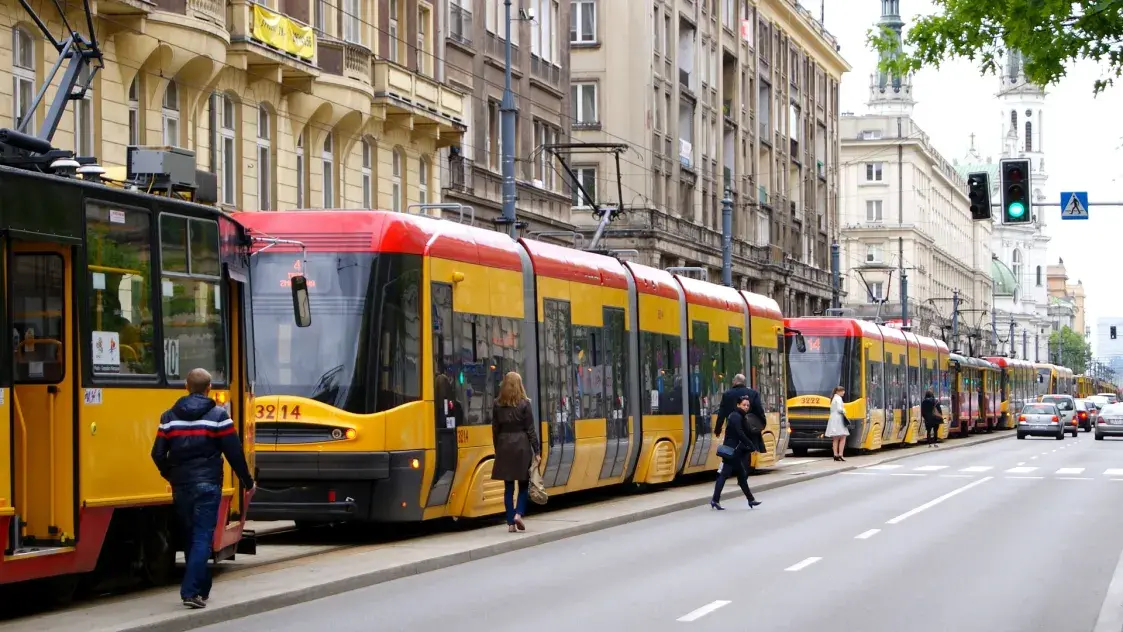
In general, finding a psychologist becomes one of the most pressing problems. And we first of all help guys to find a psychologist, and only then - a job. You can go to work tomorrow, but without the help of a psychologist you can make a mess here and now.
The problem is that the minimum cost of an hour with a good psychologist in Warsaw is 70 euros, says Paмel. There are psychologists who help Belarusian veterans for free. Sometimes the guys apply to organizations that help political prisoners, they help to find a specialist.
The rehabilitation center "Lanka" also tried to find psychologists for the military among Belarusians, who worked with the victims of repression in 2020. But it turned out that most of them can't work through the military trauma.
"So far, we have been cooperating only with Ukrainian psychologists, who have experience of working in the ATO. They have worked out methods. Guys and girls say that working with these specialists suits them, that they feel better in the process".
But the military often refused the help of Belarusian psychologists, as it was not possible to establish a trusting relationship.
If someone reads this text and thinks that his/her competences are suitable for working with military trauma - let me know. Write to us in "Lanka" or to the Association of Belarusian Volunteers (contacts of both organizations are available in the editorial office of Euroradio).
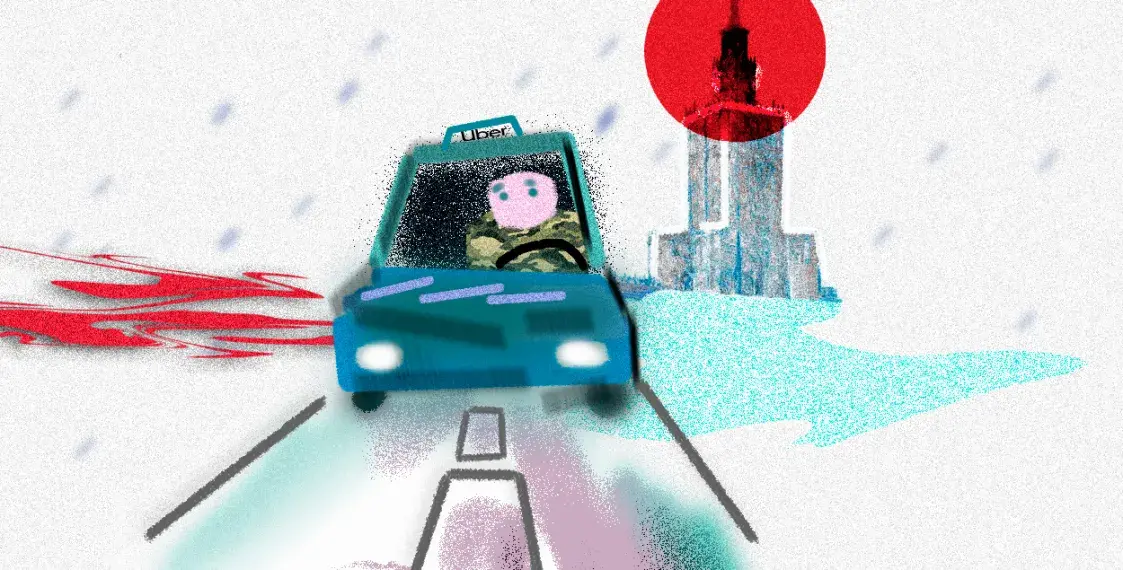
What "Quiet" needs most of all is not money, but work. He hopes that a more or less understandable daily routine and interesting work will help him to navigate in his new life.
The Association of Belarusian Volunteers follows the development of Belarusian businesses in Poland and accumulates vacancies. But while a veteran in the state would have benefits when hired, the proto-state does not guarantee it.
"We don't advertise that we offer jobs to guys with combat experience. I just ask Belarusian businesses to tell about vacancies, and the guys respond to them on a general basis, there is no priority for us. Our guys get there incognito," says Pavel.
Sometimes volunteers manage to get into retraining programs, but even in such groups there are not enough places for everyone.
"Do veterans have priority in anything?"
"Where, in Poland?" Pavel wonders. "The only thing that distinguishes us from the others is the closer attention from the Polish authorities. I know that the process of obtaining international protection for political prisoners can go twice as fast as for guys with combat experience".
"The front-end of the society must be ready to work with veterans"
One of the Swedish volunteers who fought in Ukraine recently returned home. Immediately after arriving in Sweden, he was approached by several organizations offering psychological help. The help he refused.
"I really have no problems," he assured us. He is not a member of even veteran communities, which are created mainly for the military to support each other, he says he has enough support as it is.
And if we consider not volunteers but human resources - Swedish military personnel are involved in foreign missions. For example, they were present in Afghanistan - the state is obliged to support them for ten years after their return home.
Right now there are about 10 Belarusian volunteers in Poland, who need help. Mostly - help with work, a few guys - with doctors' fees. So few that it doesn't take a big government to help them. Donations from those who liked posts about liberating Belarus with weapons in their hands would be quite enough to provide these people with help for the first time.
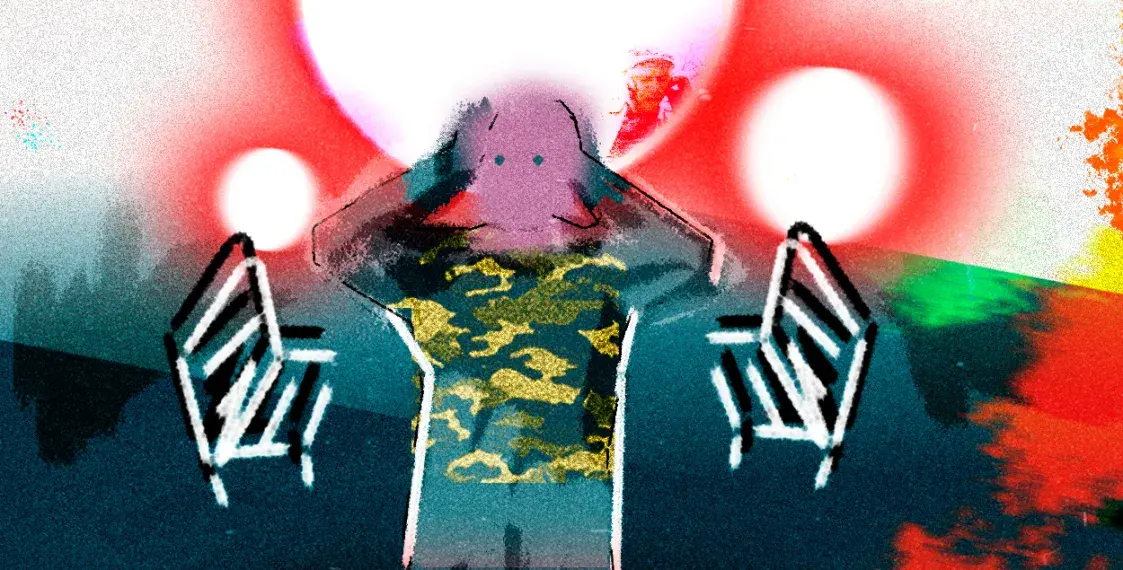
But in total, at least a thousand Belarusians went through the fighting in Ukraine, Marina says. At different times, they may need help from diasporas and civil society.
And the society should also be prepared for the fact that people come back from the war with new reactions. And Olga Galchenko insists: it is not the veterans who should think about how not to offend anyone, how to fit into the old but little-understood world. It is society that must understand the reactions of people who have returned from war.
"They may stutter, they may get lost in crowds, they may be uneasy and uncomfortable with lots of loud noises around them. They may react acutely to things that are common to you".
The front-end of society - medical professionals, lawyers, salespeople - should be prepared to have veterans living near them, and they are likely to be among their customers. In the US, police have certain protocols on how to behave when talking to a veteran. You can't, for example, walk around them from the back or surround them, this can understandably elicit an aggressive response.
And you also have to be prepared for the fact that there will be people with disabilities in society, and in Ukraine there is still a problem with the perception of these people, they can still point fingers or ask questions.
How should one behave?
There was a company in Ukraine: when you saw a military man, you put your hand to your heart, thus expressing your respect. I still do that: if I see a military man in the crowd, a man who obviously participated in combat operations, I try to nod or smile. Usually veterans don't want a lot of attention. Acceptance and understanding, reasonable communication, respect for their experience in combat is enough for them.

















